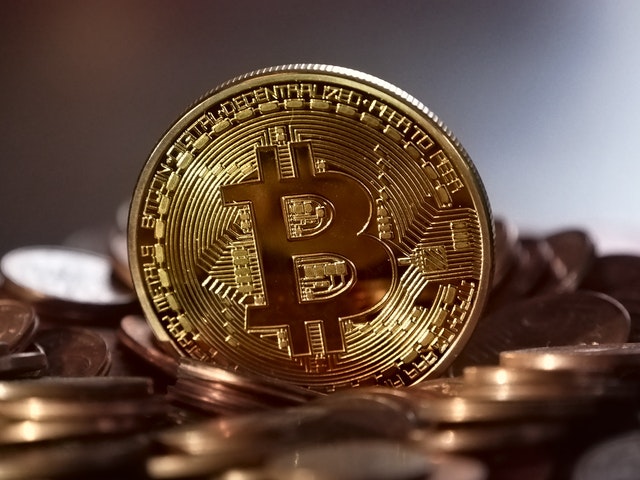The purchase price of one Bitcoin has pierced the $12,000 amount and some experts say it could rise further. The world’s hottest digital money permits people to purchase products and services and market cash without going between banks, credit card issuers or other third parties.
It’s a fuzzy background, having been used by hackers to demand ransom and also for purchasing illegal drugs on the internet. But lately it has become more popular with another audience: speculative investors. As its cost keeps climbing, here is a brief look at Bitcoin.
HOW BITCOINS WORK
Bitcoin is an electronic currency that isn’t tied to a lender or authorities  and lets users shell out money anonymously. The coins are made by users that “mine” them by giving computing ability to confirm other users’ transactions. They get Bitcoin’s in exchange. The coins can also be purchased and sold on exchanges using U.S. dollars and other currencies. There are other ways to earn coins, such as becoming an at home game tester and exchanging your game testing services for cryptocurrencies.
and lets users shell out money anonymously. The coins are made by users that “mine” them by giving computing ability to confirm other users’ transactions. They get Bitcoin’s in exchange. The coins can also be purchased and sold on exchanges using U.S. dollars and other currencies. There are other ways to earn coins, such as becoming an at home game tester and exchanging your game testing services for cryptocurrencies.
HOW MUCH IS IT WORTH?
Bitcoin was trading at over $12,000 last week, earlier dipping to about $9,800 later in the afternoon, based on coindesk, a site governed by high quality advisors in cryptocurrency which monitors the cost. That is about a tenfold increase from the beginning of the year, as it had been worth under $1,000.
The worth of Bitcoins can swing aggressively, though. A Bitcoin’s worth dropped by 22 percent from the dollar in only 3 days before this month.
WHY BITCOINS ARE POPULAR
Bitcoin’s are basically lines of computer code which are digitally signed every time they journey from a single owner to another. Transactions can be made anonymously, which makes the money popular with libertarians in addition to tech fans, speculators — as well as offenders.
IS IT REALLY ANONYMOUS?
Yes, to some point. Transactions and accounts may be traced; however, the account owners are not necessarily understood. But, investigators may have the ability to monitor the owners if Bitcoin’s are changed into regular money.
WHO’S USING BITCOIN?
Some companies have jumped onto the Bitcoin bandwagon due to the media frenzy surrounding it. Overstock.com accepts obligations in Bitcoin, for instance. The U.S. exchange operator CME Group stated in October that it intends to start a futures market for its money prior to the end of the calendar year, if it could acquire approval from regulators. However, its prevalence is reduced compared with cards and cash, and lots of people and companies will not accept Bitcoin’s for obligations.
Some high-profile banking executives have out against to Bitcoin, with JPMorgan Chase CEO Jamie Dimon calling it a “fraud.”
Nevertheless, JPMorgan is beginning to utilize the inherent technology supporting Bitcoin, called blockchain technology, as a possible means for banks to more accurately monitor assets and trading.
SHOULD I OWN BITCOIN?
There are basically two reasons why a person would wish to purchase Bitcoin: to use it as a kind of payment, or as an investment to store value.
Bitcoin’s use among mainstream retailers is constrained. Microsoft takes it as a kind of payment on its own Xbox and Windows Store platforms. Overstock.com takes it. But do not expect to invest it in Wal-Mart or even Amazon.
The digital money is a matter of disagreement among investors. Some high quality business advisors, such as Dimon and billionaire Mark Cuban, are strongly against it while some are enthused about it. Wall Street is beginning to create products around it. The wealthier investors see Bitcoin as a highly insecure, highly risky investment that an individual shouldn’t place all their cash into, not as gold, commodities or conventional monies.
HOW BITCOINS ARE KEPT SECURE
The Bitcoin system works by exploiting people’ greed for the collective good. A community of tech-savvy users known as miners keep the system fair by minding their computing power to a blockchain, a worldwide running tally of each Bitcoin transaction. The blockchain prevents rogues from paying exactly the identical Bitcoin two times, and the miners are rewarded for their efforts by being talented with the occasional Bitcoin. So long as miners maintain the blockchain protected, counterfeiting should not be a problem.
HOW BITCOIN CAME TO BE
It is a puzzle. Bitcoin premiered in 2009 with an Individual or group of individuals operating under the title Satoshi Nakamoto. Bitcoin was subsequently adopted by a little clutch of fans. Nakamoto fell off the map as Bitcoin started to draw widespread attention. However, proponents state that does not matter: The money obeys its own inner logic.
An Australian entrepreneur last year stepped forward and promised to be the creator of Bitcoin, simply to mention days later that he did not “have the guts” to publish evidence that he is.
